
Politics
13:03, 26-Mar-2018
Egypt's presidential election opens with little suspense
CGTN
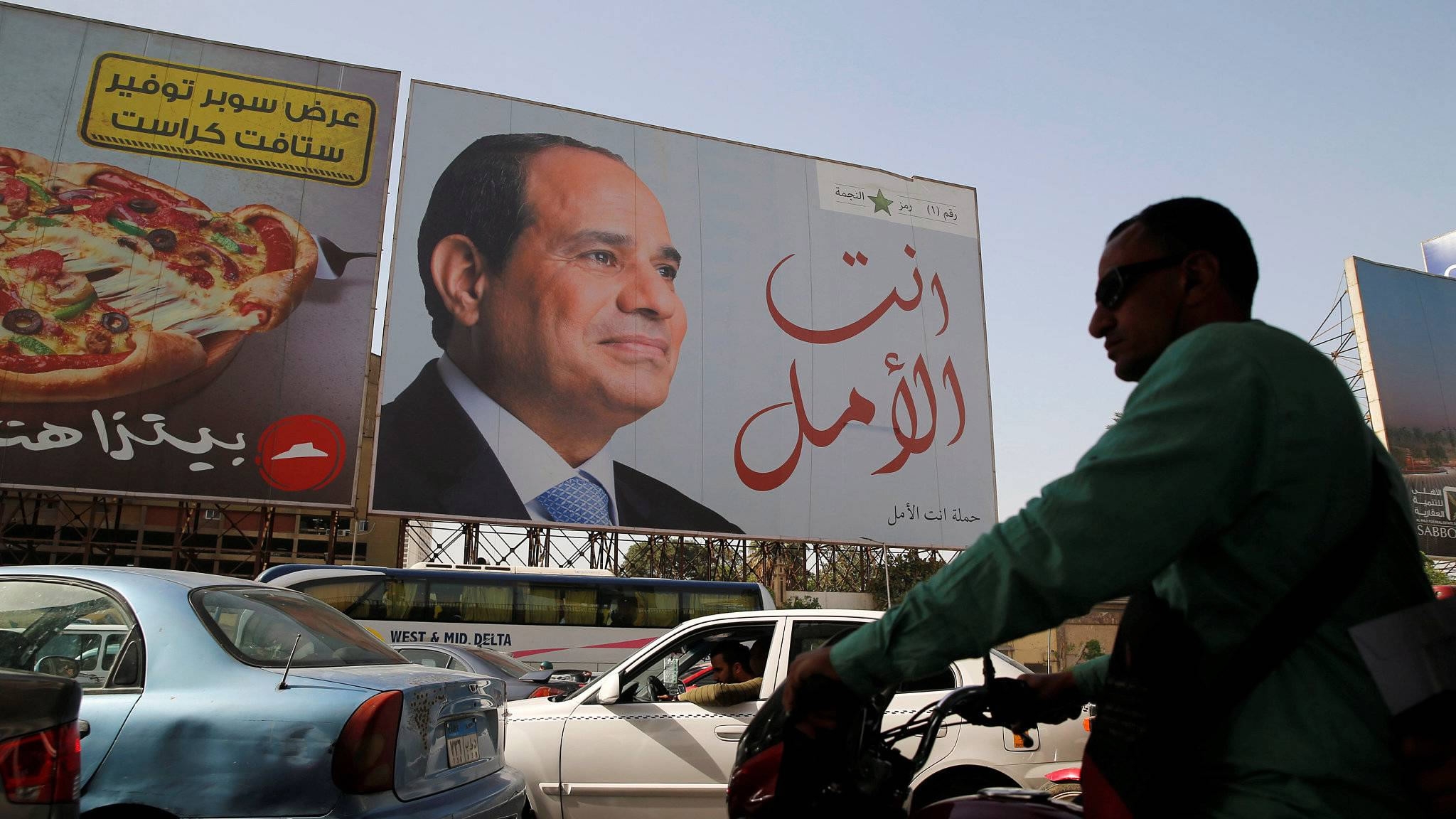
Egypt, known for its pyramids and ancient civilization, will witness a presidential election from Monday till Wednesday, in which Egyptians have to choose between only two contenders: incumbent President Abdel Fatah el-Sisi and el-Ghad Party's Chairperson Moussa Moustafa Moussa.
Polling stations open at 0700 GMT, but it remains to be seen how many people will go out to vote, as there seems to be little doubt who will come out on top.
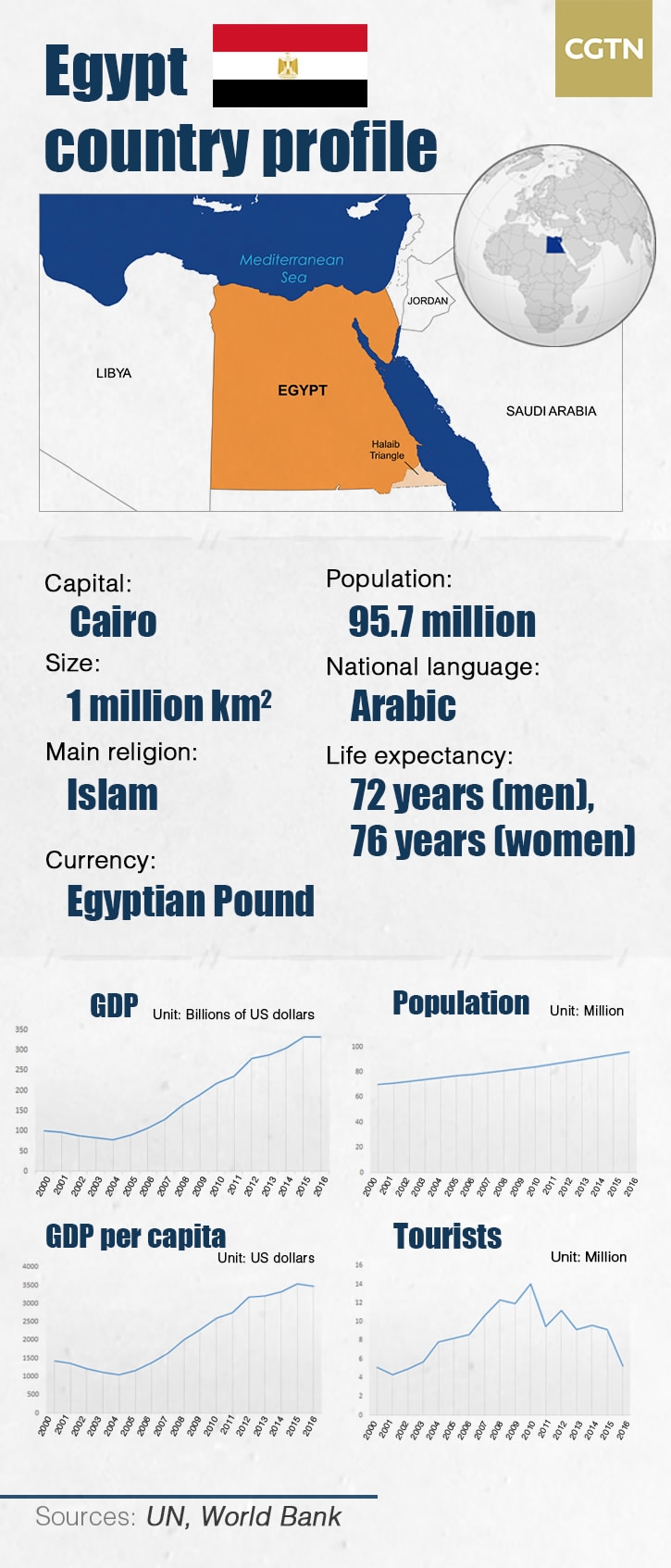
What to know about the two candidates
-Abdel Fatah al-Sisi
Sisi, 63, who was elected president in May 2014, almost a year after he removed his predecessor, President Mohammed Morsi, from office in a coup, is now seeking a second four-year-term in the election and is likely to win.
This is the third election since the 2011 Egyptian Revolution. Morsi, backed by the Muslim Brotherhood, won the elections in 2012, one year after the 2011 events, which overthrew long serving President Hosni Mubarak.
During the past four years under Sisi, efforts have been made to boost infrastructure and modernize Cairo to the point that a new administrative capital is being built.
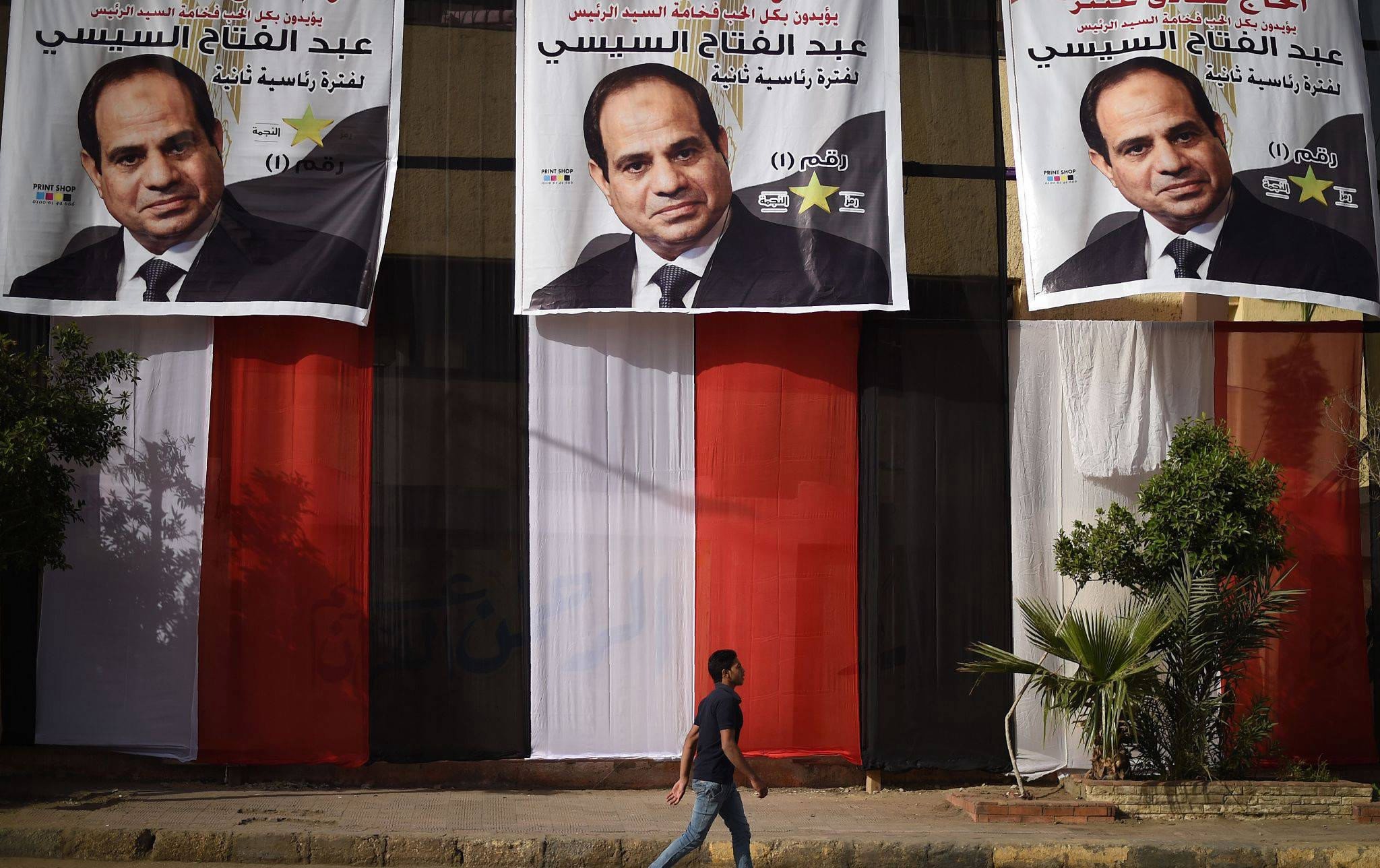
An Egyptian youth walks past a polling station in the capital Cairo's western Giza district on March 25, 2018 ahead of the vote scheduled to begin the following day. /VCG Photo
An Egyptian youth walks past a polling station in the capital Cairo's western Giza district on March 25, 2018 ahead of the vote scheduled to begin the following day. /VCG Photo
-Moussa Moustafa Moussa
Moussa is a known supporter of the president. In 2017, he launched a campaign to mobilize support for a second term for President Sisi. He didn't submit his application for candidacy until 15 minutes before the January 28 deadline, saving the election from being a one-horse race.
His Ghad (Tomorrow) party, which is considered a pro-status quo party, had actually endorsed Sisi for a second term before Moussa emerged as a last-minute challenger.
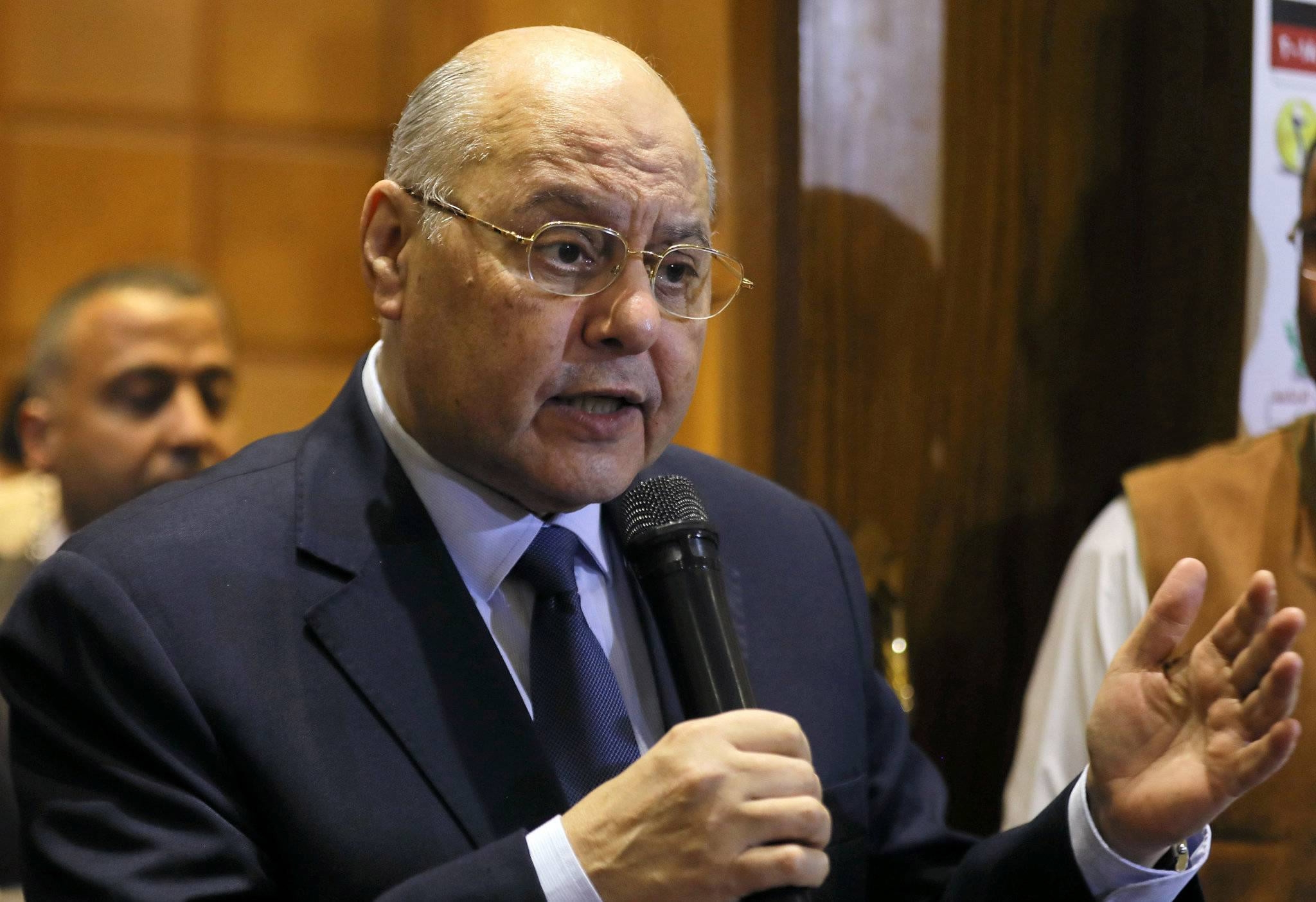
Egypt's presidential election candidate Moussa Mostafa Moussa speaks during a news conference at his campaign headquarters in downtown Cairo, Egypt, March 21, 2018. /VCG Photo
Egypt's presidential election candidate Moussa Mostafa Moussa speaks during a news conference at his campaign headquarters in downtown Cairo, Egypt, March 21, 2018. /VCG Photo
Moussa dismisses accusations he is being used to present a false sense of competition, and the electoral commission says it will ensure the vote is fair and transparent.
There were several strong candidates before, including former Prime Minister Ahmad Shafiq, human rights lawyer Khalid Ali, who had withdrawn their bids citing intimidation from the state and bias from election authorities, and former chief of staff of the armed forces, General Sami Anan, who was detained by the army and forced to withdraw.
Read more about the candidates: Things to know about upcoming Egypt's election
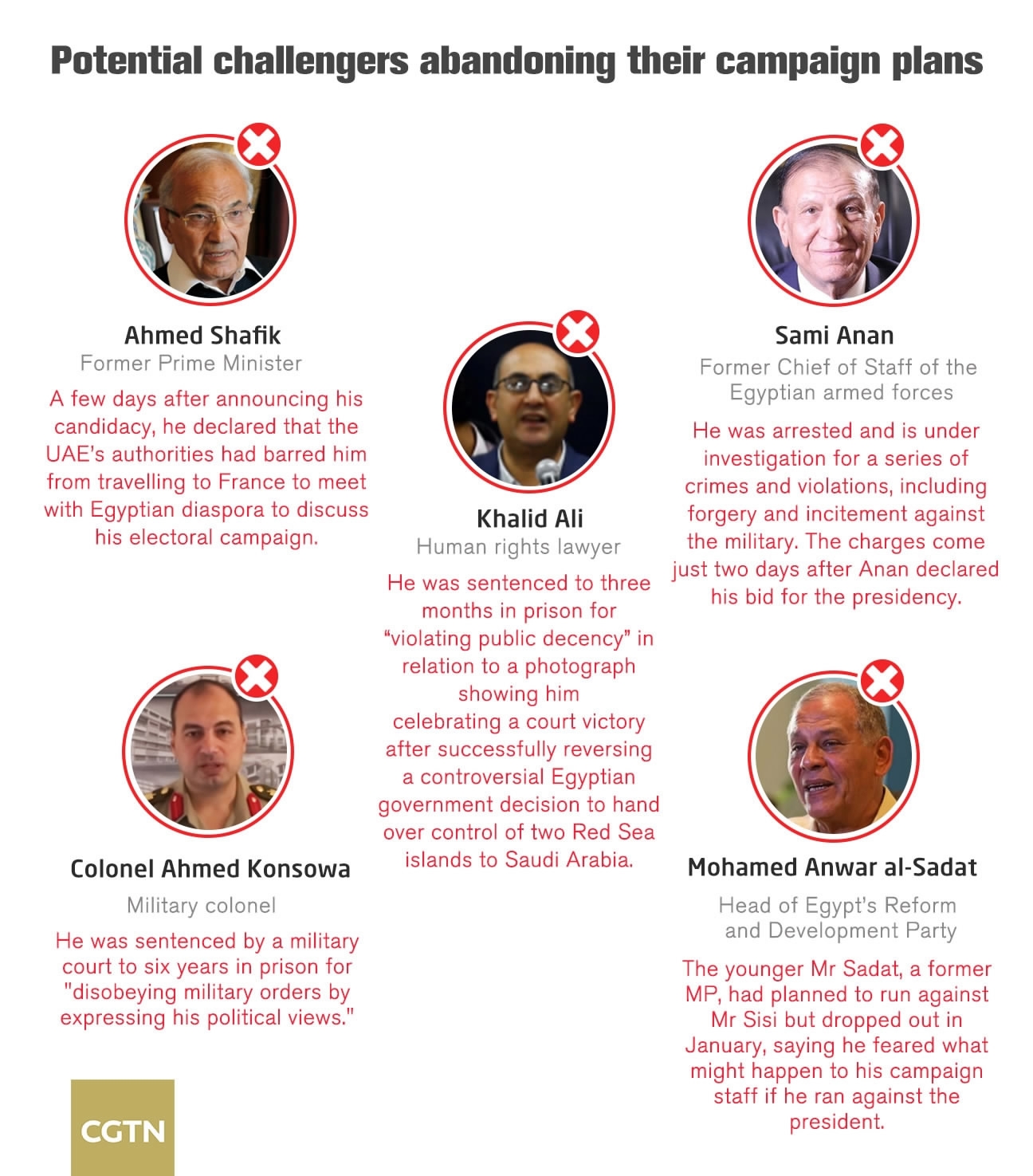
'Stay at home'
Shortly after the official announcement of the two candidates, Hamdeen Sabbahi, a former presidential candidate in 2012 and 2014, the Civil Democratic Movement, a coalition of eight opposition parties, and 150 personalities launched a boycott with the slogan "Stay at home," to discourage people from participating in a poll.
Both Moussa and Sisi have been urging Egyptians to vote, arguing that a high voter turnout would give the victor a strong mandate. And the high voter turnout is critical for President Sisi who has been criticized for want of credible competitors.
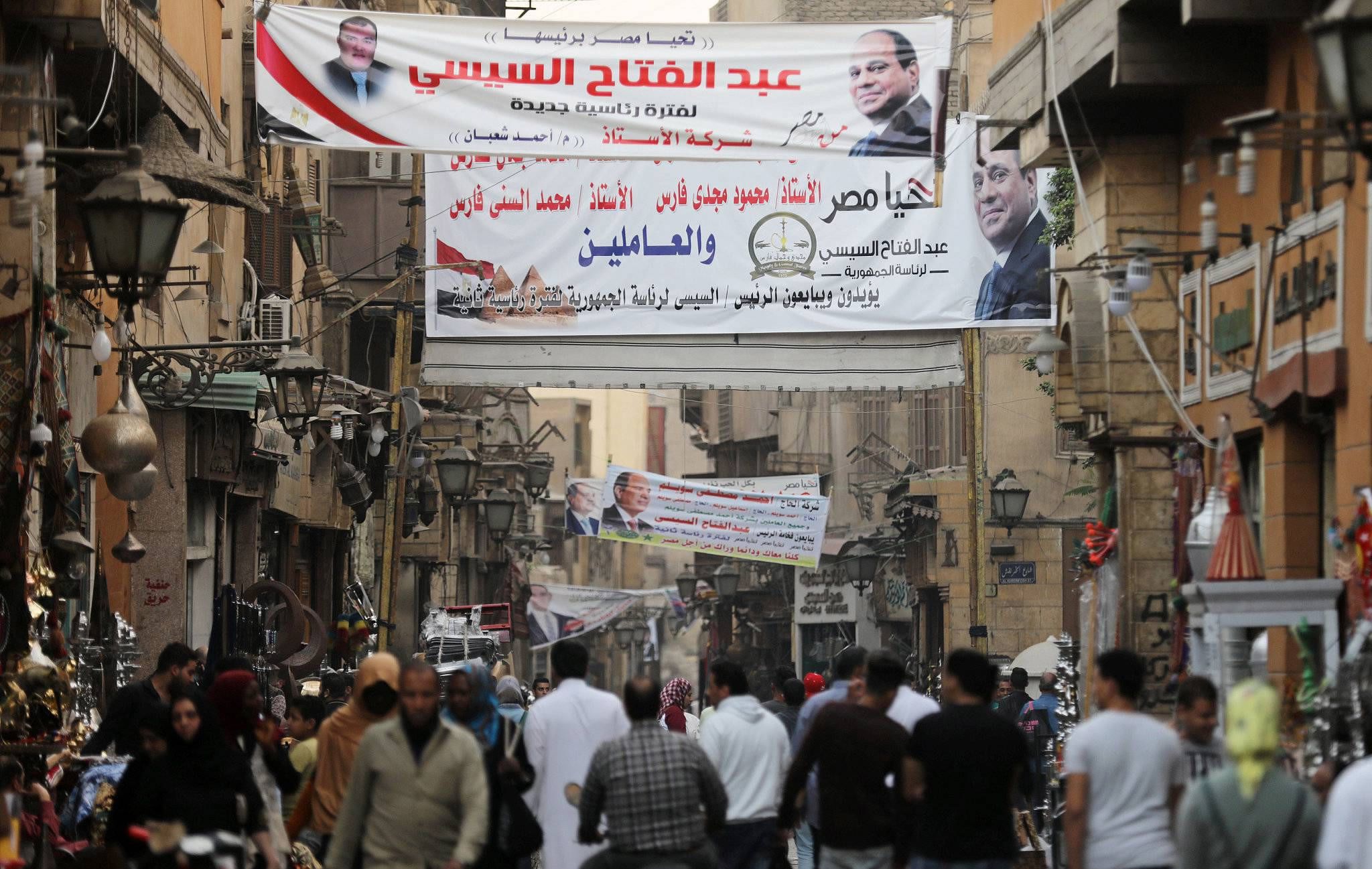
People walk under posters of Egyptian President Abdel Fattah al-Sisi for the upcoming presidential election, in Cairo, Egypt, March 19, 2018. /VCG Photo
People walk under posters of Egyptian President Abdel Fattah al-Sisi for the upcoming presidential election, in Cairo, Egypt, March 19, 2018. /VCG Photo
In remarks earlier this month, Sisi said, "If (all Egyptians) vote and a third say 'No', that would be a lot better than if half that number turn out and all of them say 'Yes'."
Sisi won nearly 97 percent of the vote in 2014, but about 37 percent of voters participated in the two-day election, prompting authorities to add a third day to obtain a final participation rate of 47.5 percent.
Some 60 million people in Egypt, the most populated Arab country, are registered to vote on March 26, 27, and 28. Official results are expected on April 2.
It is unlikely this year that even that 37 percent will be achieved, said analyst Mostafa Kamel el-Sayed.
Challenges facing candidates
The main issues facing the candidates remain a weakening economy and security.
Egypt has been mired in a severe economic crisis since its 2011 revolt.
The International Monetary Fund gave Cairo a loan worth 12 billion US dollars in November 2016 but austerity measures led to brutal inflation.

CGTN Graphic
CGTN Graphic
Inflation continues to be a big problem. The overvalued Egyptian pound has been floating since 2016 and has already halved in value since then, dragging up the cost of living and increasing reliance on state subsidies.
Security is another election issue.
Since 2013, the security forces have been battling extremists, including ISIL.
Based largely in the Sinai desert peninsula, the extremists regularly target police and army, and also the Coptic Christian minority who make up 10 percent of Egypt's population.
Since coming to power, Sisi has tried to reach out to the Coptic minority.
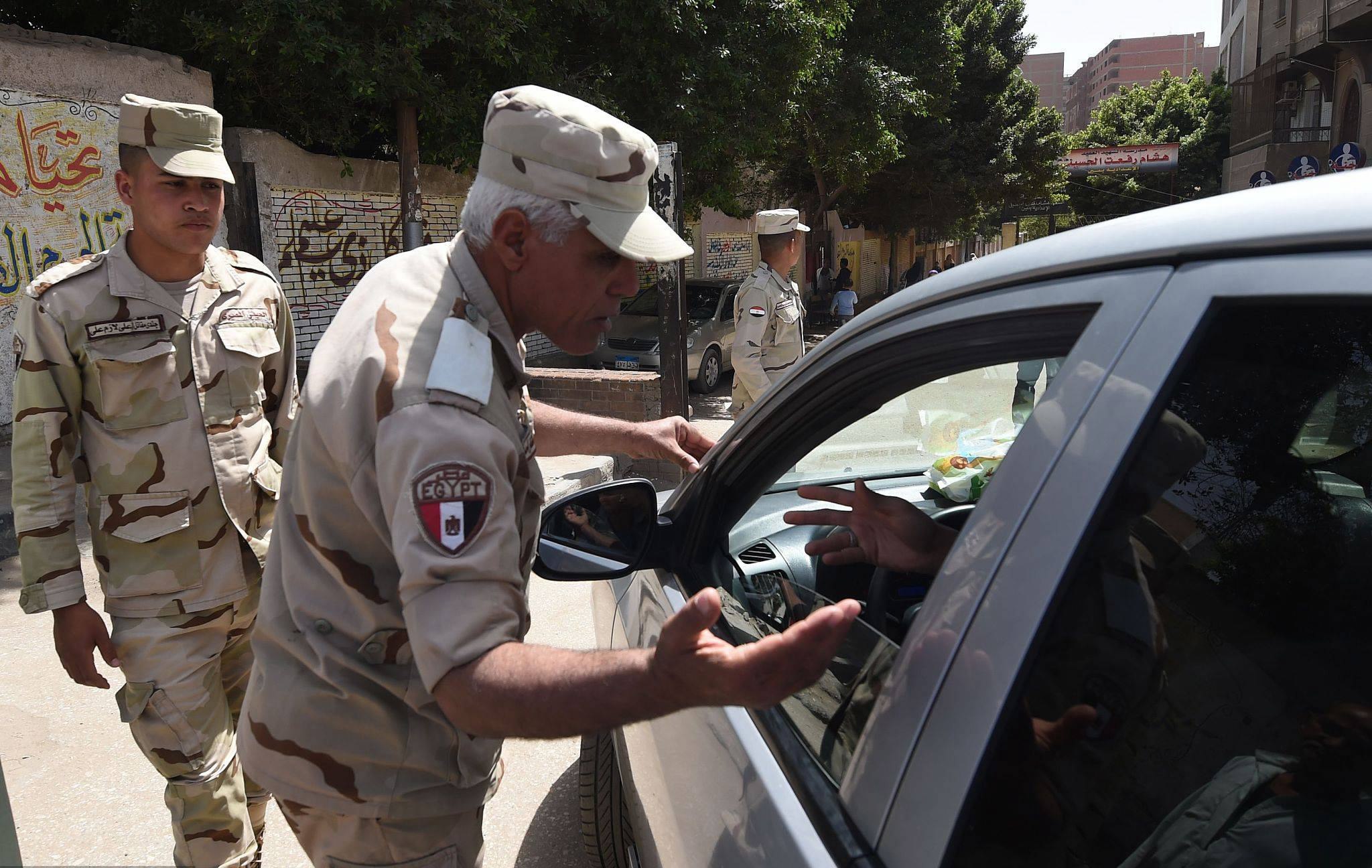
Egyptian soldiers check a car near Aziz Al Masri primary school on March 24, 2018 in central Cairo. /VCG Photo
Egyptian soldiers check a car near Aziz Al Masri primary school on March 24, 2018 in central Cairo. /VCG Photo
ISIL's Egyptian affiliate, which has killed hundreds of soldiers and civilians, has threatened attacks on election-related installations.
On Saturday, two policemen were killed in a car bomb attack targeting the provincial head of security for the Alexandria governorate.
7547km

SITEMAP
Copyright © 2018 CGTN. Beijing ICP prepared NO.16065310-3
Copyright © 2018 CGTN. Beijing ICP prepared NO.16065310-3